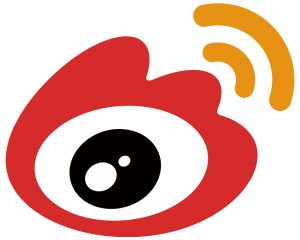The internet surveillance in China is much stricter than the western countries. Many of us use Facebook, Google every day. However, do you know that people in China are not able to access these sites? They even can’t use WordPress! According to Freedom of the Net research by the Freedom House, the status of China is considered to be not free. The Chinese government imposed lots of different policies to surveillance the citizens and block their access to websites.
Great Firewall of China
China introduced the system ‘Great Firewall of China’ in 1998 which blocked websites because of political reasons. Under this system, people in China can only access the local websites and many foreign websites are blocked. For example, Facebook, Twitter and Wikipedia are blocked. ‘Great Firewall of China’ also used to monitor the control the social media platforms of the citizens. For example, Weibo would monitor what users published carefully on 4 of June (Because of Tiananmen Square protests of 1989). Users can’t mention 4th June or even published an emoji of candles. If users published any sensitive keywords, the system would censor that automatically.
Strict Law to Monitor Social Media
Besides the ‘Great Firewall of China’ censoring websites that may contain negative news of China, there are still many laws implemented to monitor the citizens. Firstly, the President of the People’s Republic of China, Xi Jinping is also the leader of Central Leading Group for Internet Security and Informatization. The function of this group is to handle any internet-related issues. It is believed that this group would responsible for surveillance and censorship as well. We can see that the Chinese government values internet surveillance at importance position as Xi takes charge of the group himself. Also, the Chinese government launched ‘Real-name system’ in 2013. This policy requires citizens use their real name to register accounts in different social media platform like Weibo. Therefore, the Chinese government can have better control over internet usage.

Arrestment
The Chinese government frequently use the internet surveillance to find out activists and use their speech online to arrest them. The most common accusation of the ‘internet crime’ claimed by the Chinese government is ‘Divulging state secrets, subverting state power and jeopardising national unification; damaging state honour’. The Chinese Nobel Peace Prize winner Liu Xiaobo is one of the examples. Liu is a famous activist in China. He published Charter 08 which called the Chinese government to provide the human right, freedom of speech and universal suffrage for citizens online. Charter 08 gained a wide range of support in China. The petition of supporting it reached 13,000 signatures till 2013. After he published the Charter 08, Liu experienced long-term surveillance. In 2009, Liu was arrested in the accusation of ‘Divulging state secrets, subverting state power and jeopardising national unification; damaging state honour’. Liu awarded Nobel Peace Prize in 2010 when he was still in jail. The Nobel Committee praised Liu played the role of strong spokesman for the application of fundamental human rights also in China.
The campaign to establish universal human rights also in China is being waged by much Chinese, both in China itself and abroad. Through the severe punishment meted out to him, Liu has become the foremost symbol of this wide-ranging struggle for human rights in China.
Said by the Committee.
Internet censorship circumvention
Because the Chinese government imposed the ‘Great Firewall’ to block most foreign websites, circumvention (which was called ‘wall climbing’ in China) by using VPN is popular and it is the only way for people in China to use Facebook and so on. However, as the government realised that heavy use of VPN, it implemented the stricter law to avoid people from using banned websites. In recent day, the Chinese government
has launched a 14-month nationwide campaign against unauthorised internet connections, including virtual private network (VPN) services, which allow users to bypass the country’s infamous “Great Firewall”.
In conclusion, the main different on internet surveillance between China and other Western countries is that the western countries would only collect personal data and monitor citizen in order to prevent crime and combat terrorism. However, the purpose of Chinese internet surveillance is only a tool of government to control speech and ideas of the citizens.
Leave a Reply